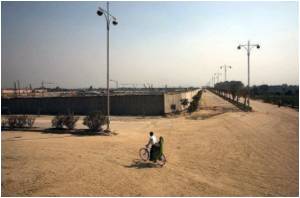
Underlining the magnitude of the problem, the UN health agency noted that a billion people still have no access to basic health care.
The WHO issued 17 recommendations to countries, spanning "education, regulatory, financial incentives and professional and personnel support" to attract doctors and nurses to work in the countryside, said Manuel Dayrit, who heads the agency's human resource department.
It called for instance, for medical schools to be set up outside cities, in the hopes that graduates would stay on after completing their training.
It also suggested that financial incentives, such as bonuses, housing subsidies, free transportation and paid leave be offered to get young doctors to relocate to rural districts.
Holding up Norway as an example, Dayrit noted that authorities there finance postgraduate studies of doctors on the condition that they return after their training to live in rural districts.
Advertisement
In Mali, doctors are leaving for the capital and taking up jobs that are irrelevant to their degrees -- such as taxi driving, even though inhabitants of rural districts lack doctors, said Jean-Marc Braichet of the WHO's health personnel department.
Advertisement
Rich countries are not spared from the trend.
In the United States, only 9 percent of doctors have decided to set up their practices outside cities, according to the WHO.
Source-AFP











